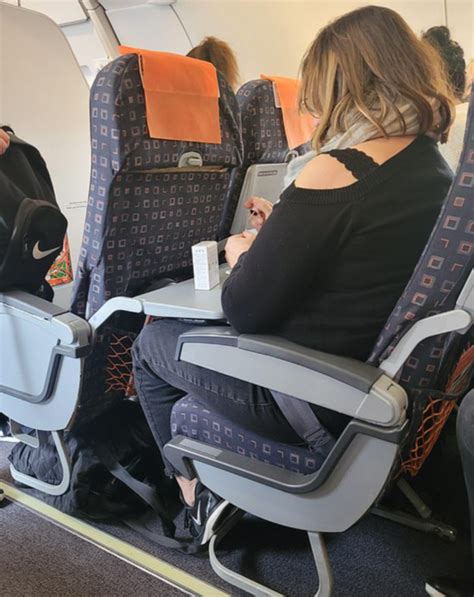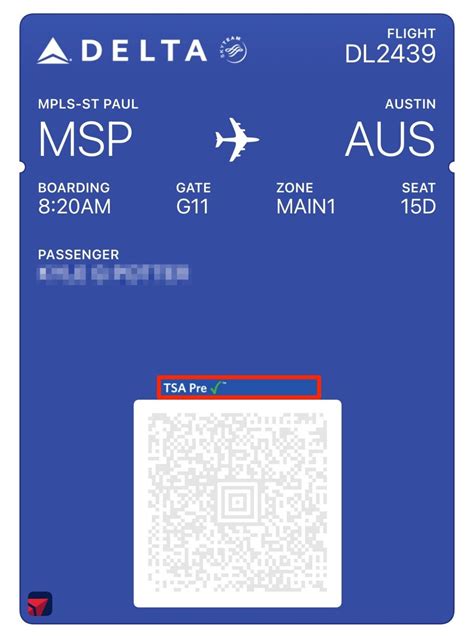
A Delta Air Lines flight became the epicenter of an online firestorm after a video depicting a baby screaming inconsolably ignited a fierce debate about parenting etiquette and passenger rights on airplanes. The footage, which quickly went viral, has spurred discussions on social media platforms, dividing users into camps that either sympathize with the parents or criticize them for not managing their child’s behavior.
The incident, which took place on an unspecified Delta flight, shows a baby crying loudly and seemingly without pause, causing apparent distress to fellow passengers. The video, initially posted on platforms like TikTok and X (formerly Twitter), has since been shared widely, accumulating millions of views and thousands of comments. This has resulted in a heated debate on the responsibilities of parents traveling with young children, and the extent to which other passengers should be expected to tolerate such disruptions.
“Delta has not yet released an official statement regarding the incident,” according to Yahoo Lifestyle. However, the unofficial discourse continues to rage online, focusing primarily on whether the parents should have done more to soothe the child and whether airlines should implement policies to address such situations.
The core of the debate revolves around the balance between understanding the challenges of parenting and respecting the rights of other passengers who have paid for a peaceful flight. Some argue that parents should be more proactive in preventing or mitigating such disturbances, suggesting tactics like bringing toys, pacifiers, or utilizing techniques to calm the child. Others contend that babies cry as a natural form of communication and that parents are often doing their best under stressful circumstances.
Adding fuel to the fire are anecdotal accounts from passengers who have experienced similar situations. These accounts often detail the varying degrees of tolerance displayed by fellow travelers, ranging from sympathetic understanding to overt hostility. The prevalence of these stories underscores the need for a broader discussion about empathy and consideration in shared travel spaces.
The viral video has also triggered conversations about potential solutions, including designated family zones on flights or the provision of resources for parents traveling with infants. While such proposals have their proponents, they also face criticism from those who believe they could lead to segregation or unfairly burden families with young children.
The incident highlights the broader issue of navigating shared spaces with diverse needs and expectations. As air travel becomes increasingly commonplace, the need for mutual understanding and respect becomes even more critical. The debate sparked by the screaming baby video serves as a reminder of the challenges and complexities involved in balancing individual freedoms with collective well-being in confined environments.
Furthermore, the online discussion has also touched upon the pressures faced by parents to conform to societal expectations of perfect parenting. Some commentators have pointed out that the scrutiny directed at the parents in the video is indicative of a larger trend of judging parents’ every move, often without considering the unique circumstances and challenges they face.
The debate surrounding the screaming baby on the Delta flight underscores the ongoing tension between individual rights and collective comfort in public spaces. It is a conversation that requires empathy, understanding, and a willingness to find solutions that accommodate the diverse needs of all travelers.
The controversy extends beyond just the immediate incident on the plane. It delves into broader societal expectations of parents, particularly mothers, who are often disproportionately blamed for any perceived misbehavior of their children in public. The incident also raises questions about the lack of support systems and resources available to parents traveling with young children, and the potential for airlines and other travel providers to better accommodate their needs.
In-depth Analysis of the Viral Video Controversy
The ripple effects from the viral video of the screaming baby on the Delta flight are multifaceted, touching upon issues of social etiquette, parental responsibility, and the commodification of air travel. A deeper examination reveals the nuances often lost in the quick judgments made on social media.
Firstly, it’s essential to acknowledge the inherent stress associated with flying, particularly for infants and young children. The change in air pressure during takeoff and landing can cause discomfort and pain, leading to crying. Babies also lack the ability to consciously regulate their behavior, meaning that crying is often their only way to communicate distress.
Given these challenges, the question becomes: what responsibilities do parents have to mitigate the impact of their child’s behavior on other passengers? This is where opinions diverge sharply.
Some argue that parents should exhaust all possible means to soothe their child, including bringing distractions, offering food or drink, and employing calming techniques. They also suggest that parents should be prepared to remove their child from the immediate vicinity if the crying becomes excessive and disruptive.
However, others contend that parents are often doing their best under difficult circumstances and that expecting them to completely silence a crying baby is unrealistic and unfair. They point out that even with the best preparations, babies can still become upset, and that parents should not be subjected to judgment or hostility from other passengers.
The debate also highlights the lack of clear guidelines or policies from airlines regarding disruptive children. While airlines typically address issues of passenger misconduct, there is often little guidance on how to handle situations involving crying babies or unruly children. This ambiguity can leave passengers and crew members unsure of how to respond, leading to further frustration and conflict.
Furthermore, the viral nature of the video underscores the impact of social media on shaping public opinion. The quick judgments and often harsh comments made online can amplify negative perceptions and create a climate of hostility towards parents. This can be particularly damaging for parents who are already feeling stressed and overwhelmed.
The Role of Airlines and Potential Solutions
The incident also raises questions about the role of airlines in addressing the challenges faced by families traveling with young children. Some argue that airlines should be more proactive in providing resources and support to parents, such as designated family seating areas, onboard child care services, or educational materials on how to manage common travel-related issues.
Others suggest that airlines should implement policies to address disruptive behavior, but that these policies should be applied fairly and compassionately, taking into account the unique challenges faced by parents with young children.
One potential solution that has been proposed is the creation of “quiet zones” on flights, where passengers can expect a higher level of peace and quiet. However, this idea has been met with criticism from those who argue that it could unfairly segregate families with young children and create a sense of discrimination.
Another approach is to focus on promoting empathy and understanding among passengers. Airlines could encourage passengers to be more tolerant of crying babies and to offer support to parents who are struggling. This could involve training flight attendants to mediate conflicts and provide assistance to families in need.
Ultimately, finding a solution that satisfies everyone is likely to be challenging. However, by fostering open dialogue and exploring a range of potential approaches, it may be possible to create a more positive and accommodating travel experience for all passengers.
The Broader Societal Context
The controversy surrounding the screaming baby video also reflects broader societal trends and expectations. In particular, it highlights the pressures faced by parents to conform to idealized notions of parenting.
Parents are often bombarded with messages about how they should raise their children, and they are often judged harshly for any perceived deviation from these norms. This can lead to feelings of anxiety and self-doubt, particularly when parents are faced with challenging situations in public.
The incident also underscores the lack of support systems available to parents in many societies. Many parents feel isolated and overwhelmed, and they may lack access to resources such as childcare, parental education, and support groups.
Addressing these broader societal issues is essential for creating a more supportive environment for parents and families. This could involve investing in early childhood education, providing access to affordable childcare, and promoting policies that support work-life balance.
The Ethical Considerations
Beyond the immediate reactions and proposed solutions, the incident also presents several ethical considerations. The act of filming and sharing the video without the parents’ consent raises questions about privacy and the potential for online shaming. While the intention may have been to spark a debate or vent frustration, the consequences for the family involved could be significant, including emotional distress and reputational damage.
Furthermore, the focus on the parents’ actions, while understandable, risks overlooking the systemic issues that contribute to such situations. The lack of affordable childcare, limited parental leave policies, and societal pressure to conform to unrealistic standards all play a role in the challenges faced by parents traveling with young children.
A more ethical approach would involve focusing on solutions that address these systemic issues, rather than simply assigning blame to individual parents. This could include advocating for policies that support families, promoting empathy and understanding among travelers, and encouraging airlines to provide more resources for parents traveling with young children.
The Role of Social Media and Public Discourse
The incident underscores the power of social media to amplify emotions and shape public opinion. While social media can be a valuable tool for raising awareness and fostering dialogue, it can also contribute to a climate of negativity and judgment.
The speed and anonymity of online interactions can embolden people to make harsh comments and engage in online shaming. This can have a chilling effect on public discourse, making it difficult to have constructive conversations about complex issues.
Furthermore, the algorithms that govern social media platforms often prioritize content that is likely to generate engagement, which can include controversial or inflammatory material. This can exacerbate existing divisions and make it more difficult to find common ground.
Addressing these challenges requires a multifaceted approach. Social media platforms need to take responsibility for promoting civil discourse and combating online abuse. Individuals need to be mindful of the potential impact of their online comments and avoid engaging in personal attacks or shaming. And society as a whole needs to cultivate a culture of empathy and understanding.
The Impact on Future Travel
The viral video and subsequent debate could have a lasting impact on the way people travel, particularly those traveling with young children. Some parents may feel more anxious about flying with their children, fearing judgment or hostility from other passengers.
Airlines may also feel pressure to implement new policies or procedures to address disruptive behavior. However, it is important that these policies are implemented fairly and compassionately, taking into account the unique challenges faced by families with young children.
Ultimately, the goal should be to create a travel environment that is welcoming and accommodating to all passengers, regardless of their age or circumstances. This requires a commitment to empathy, understanding, and a willingness to work together to find solutions that benefit everyone.
The Importance of Empathy and Understanding
The core of the issue boils down to empathy and understanding. Passengers without children may not fully grasp the challenges of traveling with an infant, while parents may underestimate the disruption a crying baby can cause. A greater emphasis on mutual understanding is crucial.
Encouraging passengers to remember a time when they might have needed assistance or understanding can foster a more supportive environment. Similarly, parents can be more mindful of the potential impact of their child’s behavior on others and take proactive steps to minimize disruptions.
Conclusion: A Call for Compassion and Constructive Dialogue
The “screaming baby on a plane” incident is more than just a viral video; it’s a microcosm of broader societal tensions surrounding parenting, public spaces, and the role of social media. It serves as a reminder of the need for compassion, understanding, and constructive dialogue in navigating the complexities of shared experiences.
Instead of resorting to judgment and blame, we should focus on finding solutions that support families, promote empathy, and create a more inclusive travel environment for all. This requires a collective effort from individuals, airlines, and policymakers to address the systemic issues that contribute to these challenges. By fostering a culture of understanding and support, we can create a more positive and harmonious world for everyone.
Frequently Asked Questions (FAQ)
Q1: What exactly happened in the Delta Air Lines flight incident?
A1: A video went viral showing a baby crying loudly and seemingly without pause on a Delta Air Lines flight, sparking a heated online debate about parenting etiquette and passenger rights. The video, shared across multiple social media platforms, showed passengers visibly reacting to the noise, leading to discussions about the responsibilities of parents and the tolerance expected from fellow travelers.
Q2: What are the main arguments in the online debate sparked by the video?
A2: The debate centers on two main viewpoints:
- Critics: Argue that parents should do more to prevent or mitigate such disturbances, suggesting the use of toys, pacifiers, or other calming techniques. Some also suggest that parents should remove the child from the immediate vicinity if the crying becomes excessive.
- Supporters: Contend that babies cry as a natural form of communication and that parents are often doing their best under stressful circumstances. They argue that expecting parents to completely silence a crying baby is unrealistic and unfair.
Q3: Has Delta Air Lines issued an official statement about the incident?
A3: According to Yahoo Lifestyle, “Delta has not yet released an official statement regarding the incident.” The airline has not publicly addressed the specific situation or outlined any policies related to managing disruptive children on flights.
Q4: What are some potential solutions being discussed to address similar situations in the future?
A4: Several potential solutions have been proposed, including:
- Designated family zones on flights.
- Onboard childcare services.
- Educational materials for parents on managing travel-related issues with young children.
- “Quiet zones” on flights.
- Training flight attendants to mediate conflicts and provide assistance to families. Promoting empathy and understanding among passengers.
Q5: What ethical considerations are raised by the viral video and the subsequent online debate?
A5: The ethical considerations include:
- Privacy: Filming and sharing the video without the parents’ consent raises concerns about privacy violations.
- Online Shaming: The potential for online shaming and the emotional distress it can cause for the family involved.
- Systemic Issues: Overlooking the systemic issues that contribute to such situations, such as the lack of affordable childcare and limited parental leave policies.
- Responsibility: The responsibility of social media platforms to promote civil discourse and combat online abuse.


![Browns QB Shakeup: [QB Name] Takes Lead at Minicamp!](https://jelajahtekno.com/wp-content/uploads/2025/06/unnamed-file-609-150x150.jpg)






